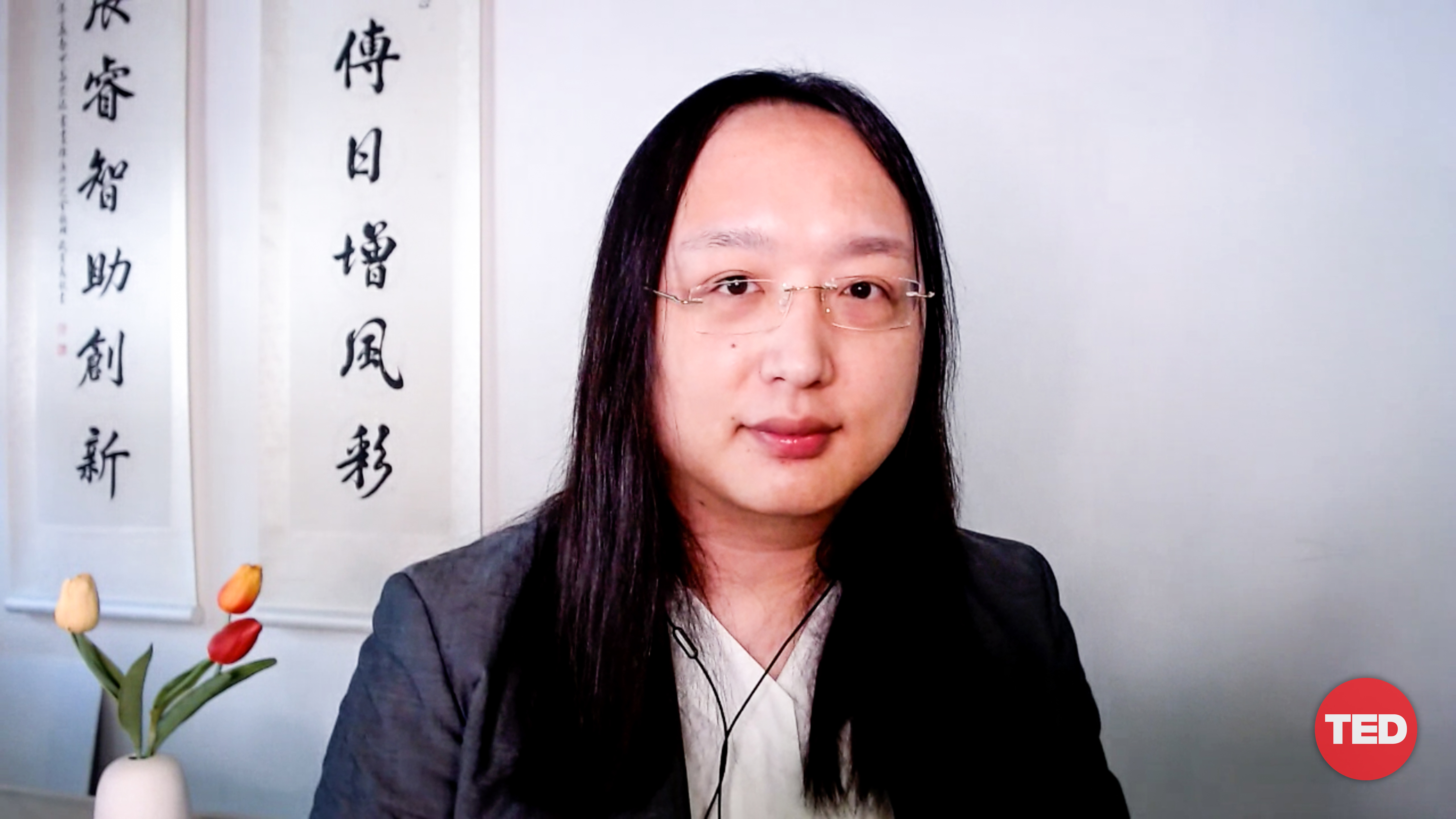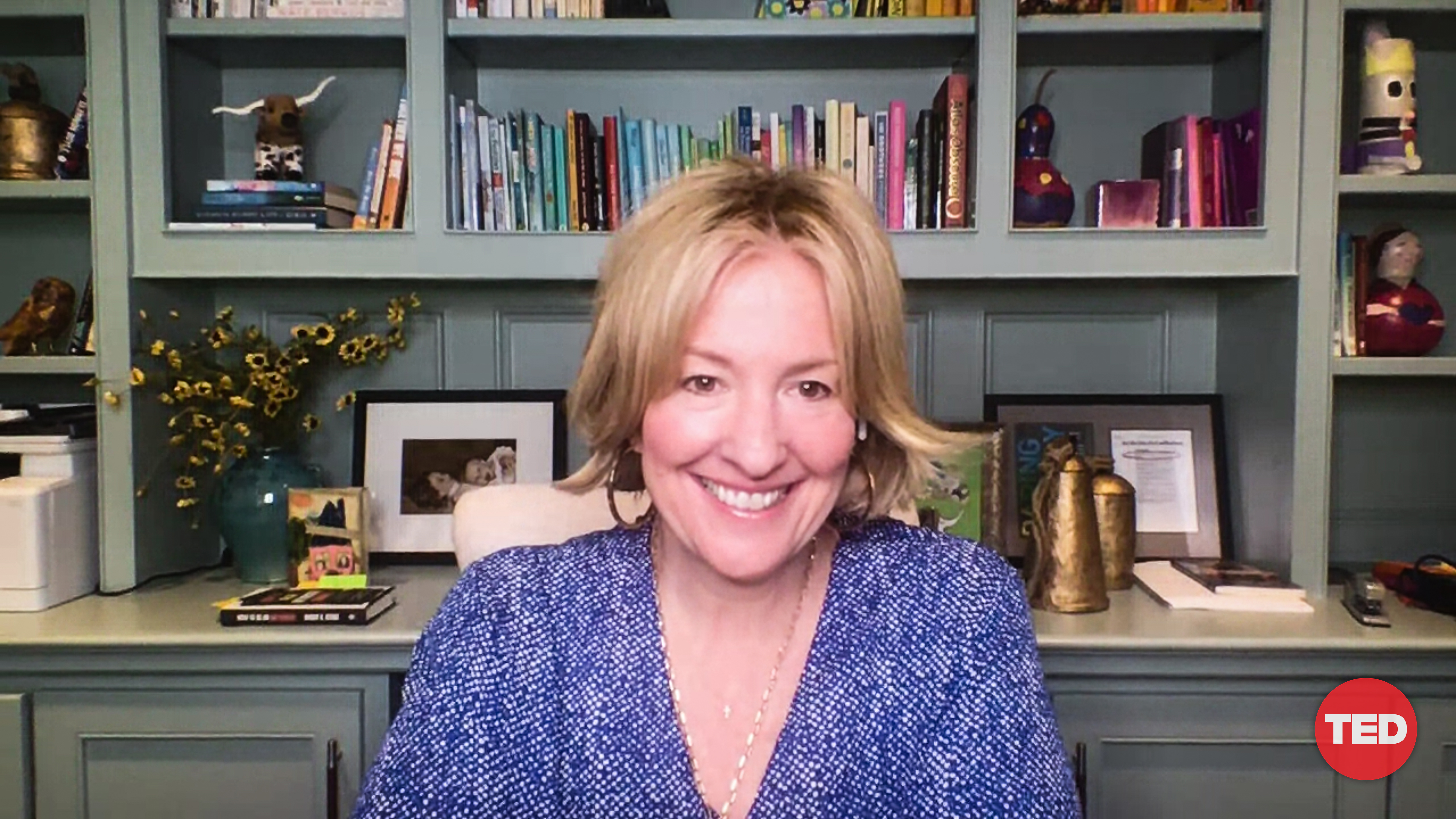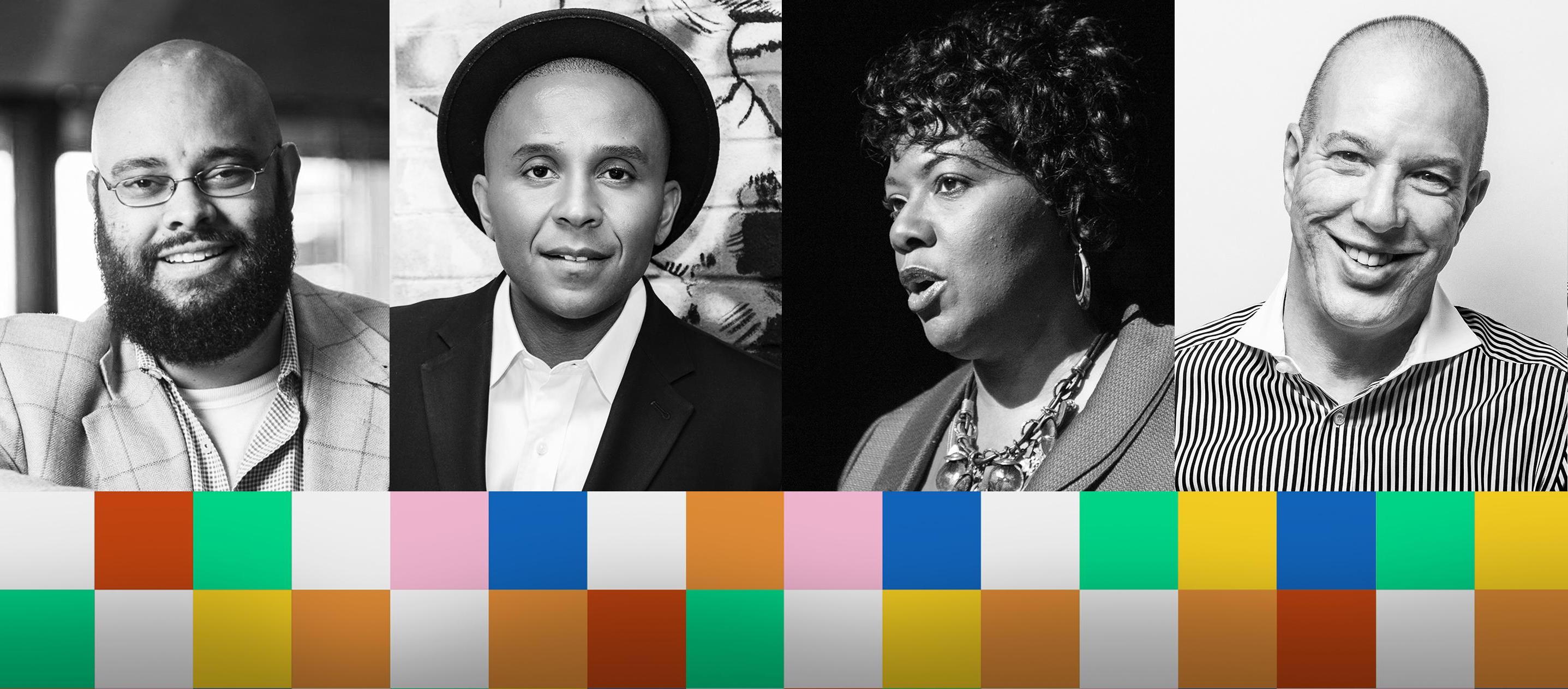For week 3 of TED2020, global leaders in technology, vulnerability research and activism gathered for urgent conversations on how to foster connection, channel energy into concrete social action and work to end systemic racism in the United States. Below, a recap of their insights.

“When we see the internet of things, let’s make an internet of beings. When we see virtual reality, let’s make it a shared reality,” says Audrey Tang, Taiwan’s digital minister for social innovation. She speaks with TED science curator David Biello at TED2020: Uncharted on June 1, 2020. (Photo courtesy of TED)
Audrey Tang, Taiwan’s digital minister for social innovation
Big idea: Digital innovation rooted in communal trust can create a stronger, more transparent democracy that is fast, fair — and even fun.
How? Taiwan has built a “digital democracy” where digital innovation drives active, inclusive participation from all its citizens. Sharing how she’s helped transform her government, Audrey Tang illustrates the many creative and proven ways technology can be used to foster community. In responding to the coronavirus pandemic, Taiwan created a collective intelligence system that crowdsources information and ideas, which allowed the government to act quickly and avoid a nationwide shutdown. They also generated a publicly accessible map that shows the availability of masks in local pharmacies to help people get supplies, along with a “humor over rumor” campaign that combats harmful disinformation with comedy. In reading her job description, Tang elegantly lays out the ideals of digital citizenship that form the bedrock of this kind of democracy: “When we see the internet of things, let’s make an internet of beings. When we see virtual reality, let’s make it a shared reality. When we see machine learning, let’s make it collaborative learning. When we see user experience, let’s make it about human experience. And whenever we hear the singularity is near, let us always remember the plurality is here.”

Brené Brown explores how we can harness vulnerability for social progress and work together to nurture an era of moral imagination. She speaks with TED’s head of curation Helen Walters at TED2020: Uncharted on June 2, 2020. (Photo courtesy of TED)
Brené Brown, Vulnerability researcher, storyteller
Big question: The United States is at its most vulnerable right now. Where do we go from here?
Some ideas: As the country reels from the COVID-19 pandemic and the murder of George Floyd, along with the protests that have followed, Brené Brown offers insights into how we might find a path forward. Like the rest of us, she’s in the midst of processing this moment, but believes we can harness vulnerability for progress and work together to nurture an era of moral imagination. Accountability must come first, she says: people have to be held responsible for their racist behaviors and violence, and we have to build safe communities where power is shared. Self-awareness will be key to this work: the ability to understand your emotions, behaviors and actions lies at the center of personal and social change and is the basis of empathy. This is hard work, she admits, but our ability to experience love, belonging, joy, intimacy and trust — and to build a society rooted in empathy — depend on it. “In the absence of love and belonging, there’s nothing left,” she says.

Dr. Phillip Atiba Goff, Rashad Robinson, Dr. Bernice King and Anthony D. Romero share urgent insights into this historic moment. Watch the discussion on TED.com.
In a time of mourning and anger over the ongoing violence inflicted on Black communities by police in the US and the lack of accountability from national leadership, what is the path forward? In a wide-ranging conversation, Dr. Phillip Atiba Goff, the CEO of Center for Policing Equity; Rashad Robinson, the president of Color of Change; Dr. Bernice Albertine King, the CEO of the King Center; and Anthony D. Romero, the executive director of the American Civil Liberties Union, share urgent insights into how we can dismantle the systems of oppression and racism responsible for tragedies like the murders of Ahmaud Arbery, Breonna Taylor, George Floyd and far too many others — and explored how the US can start to live up to its ideals. Watch the discussion on TED.com.